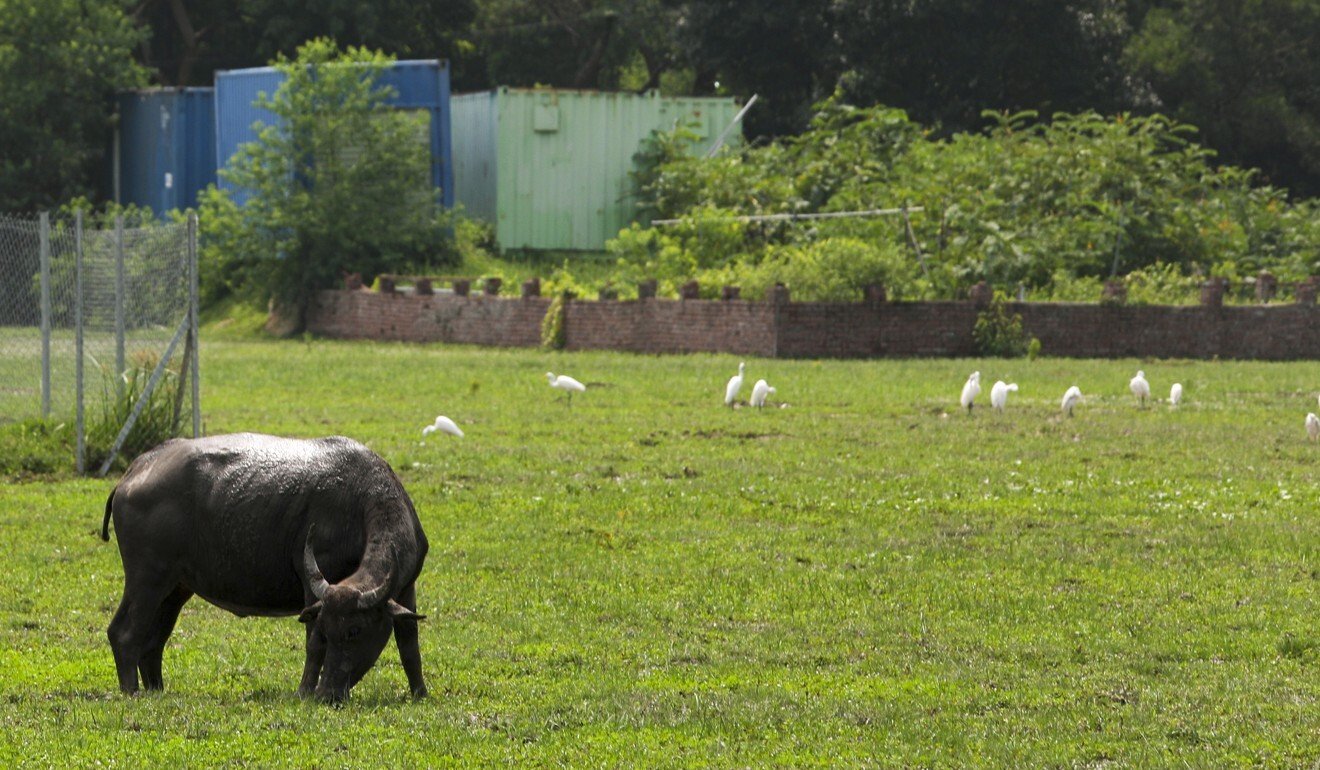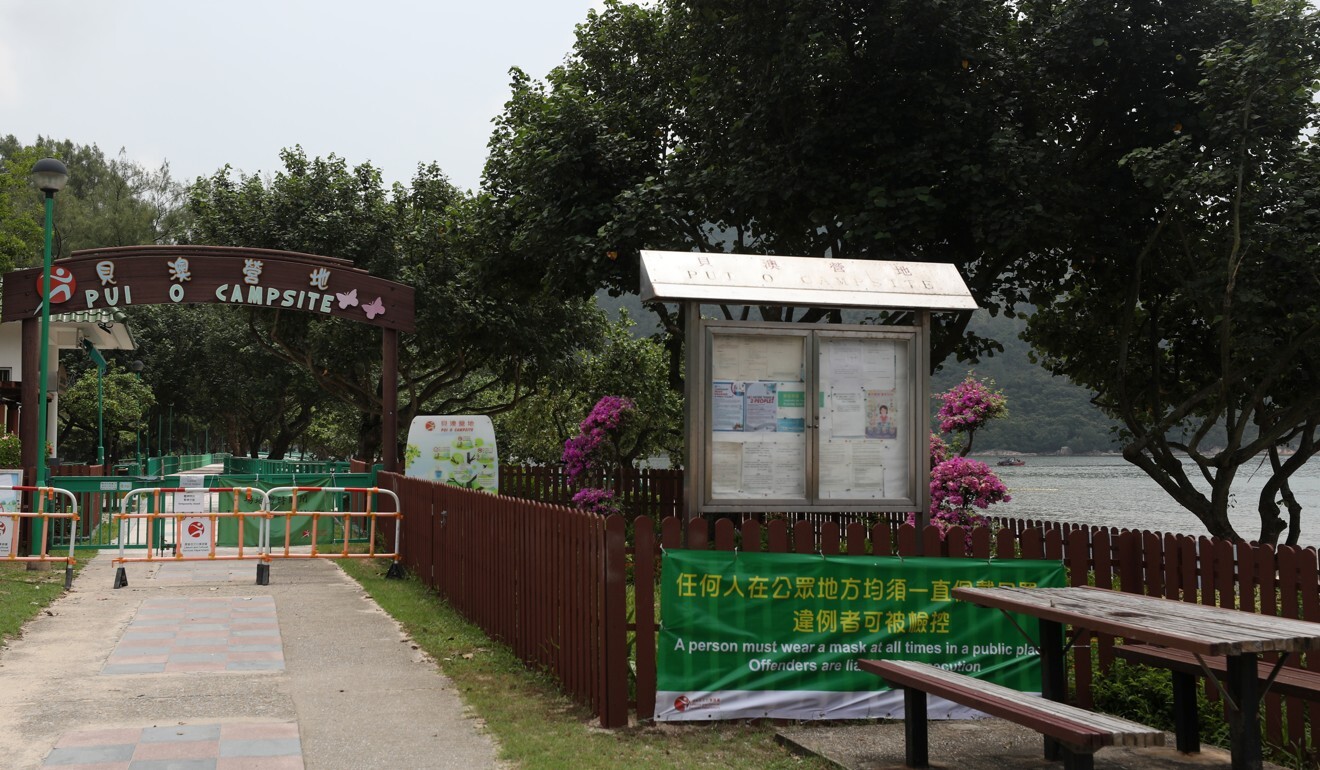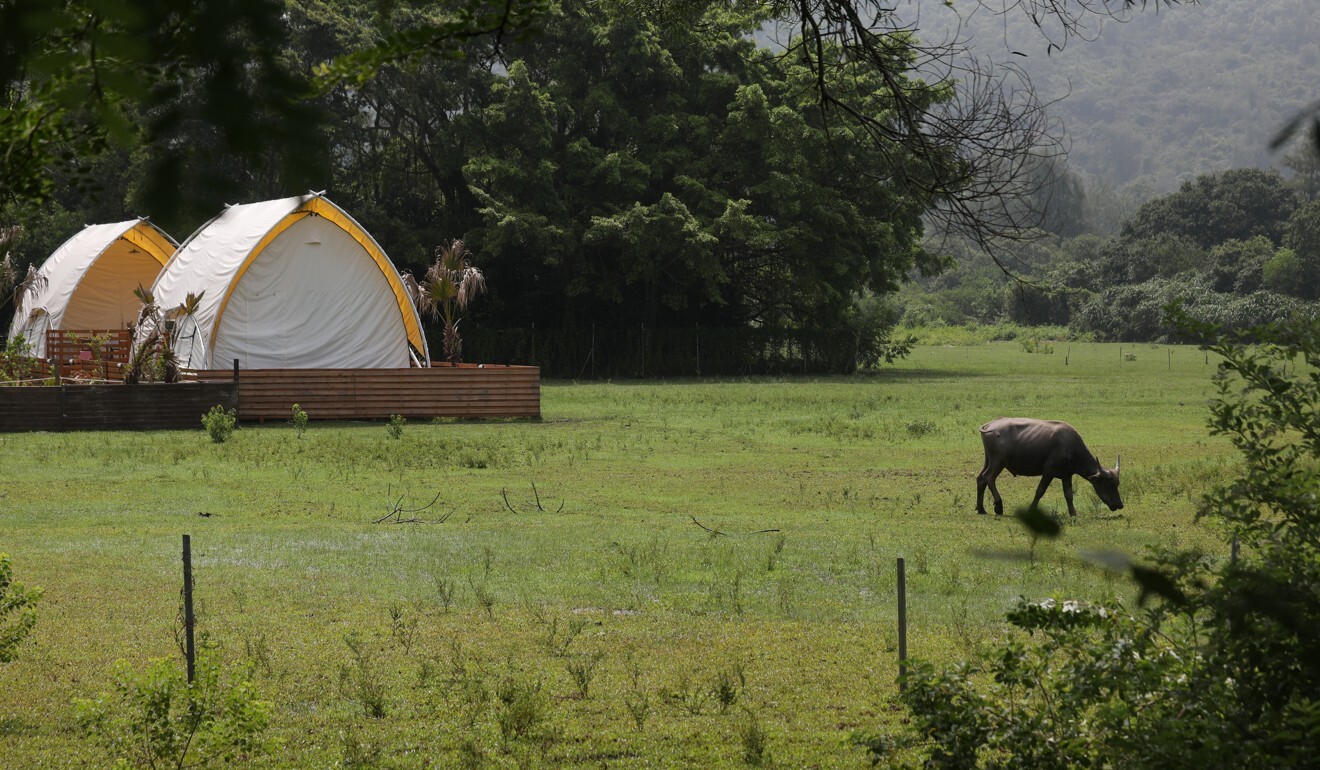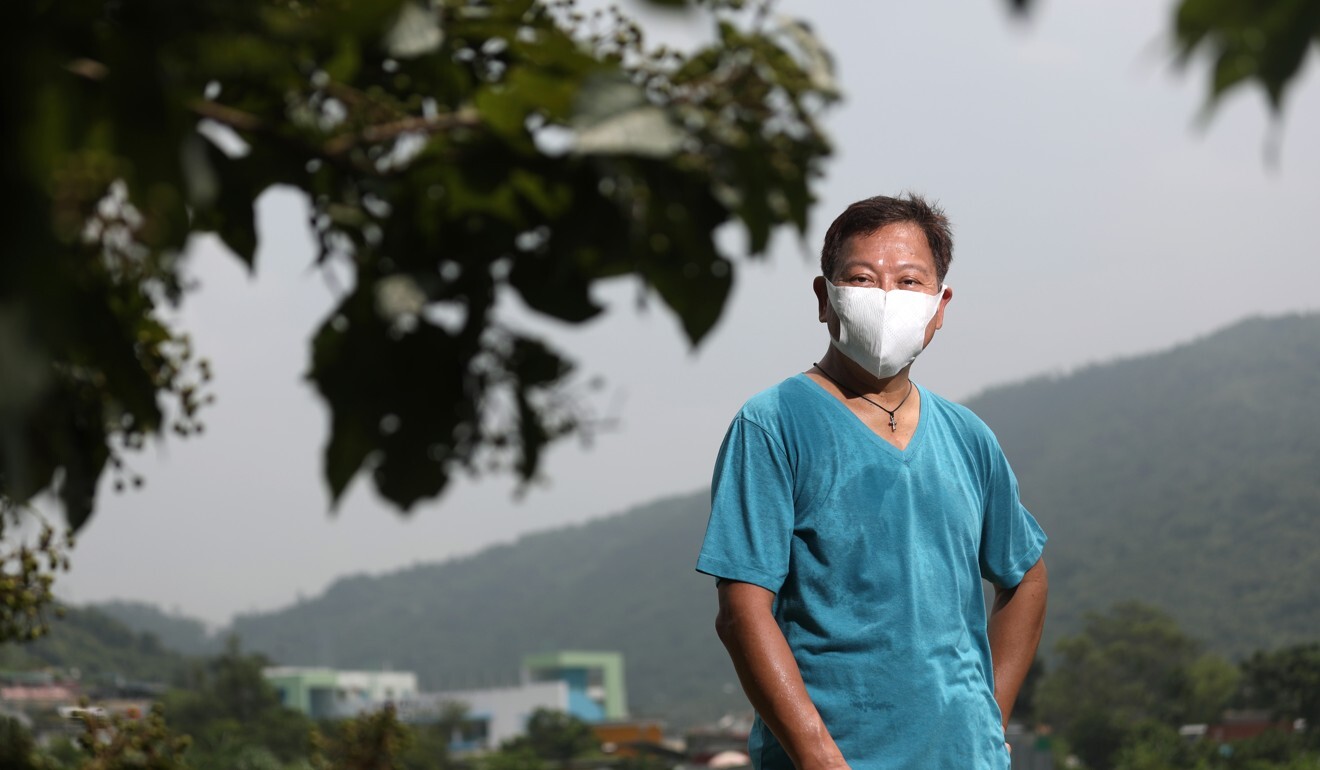
New ‘glamping site’ on Hong Kong’s Lantau Island wetlands did not seek approval to set up tents by the sea, authorities say
- Residents, green group alarmed by owners seeking new uses for land in protected coastal area
- 5,000 sign petition to block landowner’s plan to start another campsite with tents, caravans
An upmarket campsite that sprung up in a Hong Kong conservation area last November was built without approval and ordered torn down in May, officials said, but is still standing months later.
The Bull Wave Camp Plus appeared practically overnight along Lantau Island’s scenic southern coast, and opened with four large tents at Pui O beach, in a government-designated Coastal Protection Area well known for its open wetlands and herds of water buffalo.
Its website advertises a fully furnished tent with Wi-fi, hot showers, and kitchens, for up to six people at HK$2,880 a night, while a tent for up to eight costs HK$3,200.
On Saturday, the Lands Department confirmed to the Post the structures were built without approval which “constituted a breach of the lease”.
It said it had issued a warning letter in May asking the landowner to remove them, but as they were still standing during a recent inspection the department would, “carry out lease enforcement actions in accordance with the established practice”.

A check with the Home Affairs Department revealed the new camp did not have a licence “for the operation of a hotel or guest house”, and the department told the Post on Friday the camp would be inspected within eight working days.
The Planning Board also confirmed late on Friday that “no planning application had been received”.
Vision for new city off Lantau Island moves a step closer after funding approval for study
Board approval is needed for all plans to build tent camping grounds or holiday camps within the protected zone, as well as any filling in or excavation of the wetlands.
“However, the Planning Authority lacked the power to take action and that would be up to other relevant government authorities,” it said.
The Post has reached out to Bull Wave Camp for comment.

The controversy over the new camp is only the latest incident to leave Pui O residents and environmentalists worried that the protected area is under threat, as landowners put up illegal structures and try to introduce new uses on their property.
Aya Masunaga, 16, who has lived there for 10 years, was upset when she learned that landowner Au Yeung Kam-ping had applied to the Town Planning Board last month to build a holiday camp near Pui O beach.

She campaigned actively for a petition by environmental group, Save Lantau Alliance, to block the project. It had 5,031 signatures, well over its target of 800, when it closed on August 14.
“If this landowner is successful in developing her plot, it will allow other landowners to start applying for development as well,” Masunaga, a Hong Kong resident, said. “If that happens, this won’t be a coastal reserve any more.”

Owners ‘destroy first, apply later’
The Development Bureau’s 2017 blueprint for Lantau sets aside the island’s southern and western areas to be preserved, although it allows new recreational and tourism facilities.
When the Post visited the southern wetlands on Friday, it found unauthorised structures, as well as rubble and waste dumped on several lots, with some areas fenced off.
Green groups say the area has seen sporadic, illegal development, and are concerned more landowners have destroyed the wetlands before applying to make use of their site for new purposes.

According to the Land Registry, Au Yeung bought her plot of land in 2014 for HK$1.25 million.
She wants to build a 4,424 sq ft camping ground that can take four tents and four caravans. The Town Planning Board is expected to discuss her application on September 4.
This is not the first time she has tried to develop the land, according to board records, and the Save Lantau Alliance.
In 2017, a pond on her plot was filled in before she applied to use the land for agricultural purposes and was rejected. By then, a brick wall had been built on the plot as well.
Au-Yeung could not be reached for comment.
If they can use the land for something that does not harm the environment, the idea should be given a chance to be tested by going to the Town Planning Board
Dr Michael Lau, chairman of the Hong Kong Wetlands Conservation Association, said the south Lantau area had high ecological value for aquatic plants, insects and amphibians, and building tented or holiday camps in the area would not be good for its ecosystem.
Noting that Au Yeung had filled in the pond on her site, Lau said: “That effectively destroyed the wetlands and changed the hydrology of the area.”
However, Lantau Island district councillor Randy Yu Hon-kwan said a balance should be struck between land owners who want to sustainably develop their property, and environmentalists.
He said there were about 1,000 landowners on Lantau, and some had complained they were unable to reap the economic benefits of owning land in a protected zone.
“If they can use the land for something that does not harm the environment, the idea should be given a chance to be tested by going to the Town Planning Board,” he said.
Lantau Tomorrow Vision reclamation could add to nearby ‘dead zone’, scientists warn
‘Best to keep it as it is’
A spokesman for the Development Bureau said a coastal protection area was meant only see a minimum of built development.
“In general, only developments needed to support the conservation of the existing natural landscape or scenic quality of the area, or are essential infrastructure projects with overriding public interest, may be permitted,” he said.
Pui O already has a government campsite next to the beach with 54 camp bays, while the JK Club caravan camp is next to South Lantau Road.
The new Bull Wave Camp Plus came up near the government campsite.
The spokesman said the Sustainable Lantau Office was reviewing existing laws to find more effective ways to control “landfilling, dumping of waste and associated development activities causing environmental damage to areas of high ecological value at Lantau”.

Eddie Tse Sai-kit, convenor of the Save Lantau Alliance, welcomed the bureau’s review, but was worried it might not come fast enough to save the wetlands from degradation.
“They have been so slow to take action, and in the meantime, the wetlands are getting more and destroyed,” he said.
On Friday, 20-year-old Tommy Wong was among visitors snapping photographs at the south Lantau wetlands, where half of Hong Kong’s 130 water buffalo roam.
“Lantau is one of the most important preservation sites in Hong Kong. For the local population who enjoy this area, I think it’s best to keep it as it is,” he said.

